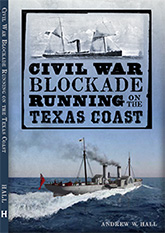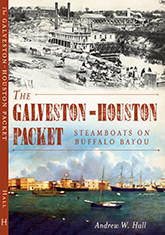General Stephen D. Lee Disses Black Confederates
One area that the advocates of black Confederate soldiers (BCS) are mostly silent on is the stated attitudes and opinions of actual Confederate leaders who lived and fought through the war of 1861-65. Those views comprise a hard, bitter lump of historical reality that must surely cause indigestion for BCS advocates, given that the “Confed cred” of those men is unassailable. We’ve seen, for example, how both Howell Cobb and his fellow Georgian, Governor Joseph Brown, viewed the prospect of arming slaves with revulsion, and saw it as a betrayal of everything the Confederacy stood for. We’ve seen how Kirby Smith asserted that the Confederacy should “go to the grave before we enlist the negro [sic.].” And we’ve seen how, according to John Brown Gordon, even the venerable Robert E. Lee himself liked to humor his colleagues with an anecdote mocking the pretensions of an African American cook to being a soldier. It’s ugly, unpleasant stuff, but it’s right there, and ignoring it won’t make it go away.
 Stephen Dill Lee (right, 1833-1908) was a Confederate general — the youngest of the South’s lieutenant generals, in fact — who after the war went on to a varied career as an author, a legislator, and educator. He was very active in Confederate veterans’ organizations, and succeeded Gordon as Commander-in-Chief of the United Confederate Veterans. In many ways, S. D. Lee was the public face of Confederate veterans, both in the North and the South. S. D. Lee is remembered today particularly for his charge to the Sons of Confederate veterans, given as part of a speech in New Orleans in 1906. Lee’s charge has been used ever since as the guiding principle of the organization, and features prominently in SCV publications, both in print and online. (Read it here, at the bottom of the page.) Indeed, the quasi-academic arm of the SCV, the Stephen Dill Lee Institute, is named in his honor.
Stephen Dill Lee (right, 1833-1908) was a Confederate general — the youngest of the South’s lieutenant generals, in fact — who after the war went on to a varied career as an author, a legislator, and educator. He was very active in Confederate veterans’ organizations, and succeeded Gordon as Commander-in-Chief of the United Confederate Veterans. In many ways, S. D. Lee was the public face of Confederate veterans, both in the North and the South. S. D. Lee is remembered today particularly for his charge to the Sons of Confederate veterans, given as part of a speech in New Orleans in 1906. Lee’s charge has been used ever since as the guiding principle of the organization, and features prominently in SCV publications, both in print and online. (Read it here, at the bottom of the page.) Indeed, the quasi-academic arm of the SCV, the Stephen Dill Lee Institute, is named in his honor.
The SCV has, of course, spent a great deal of time and effort in recent years pushing the BCS meme. While lots of folks endorse or promote the idea that there were large numbers of African Americans formally enlisted and armed in the Confederate ranks, the SCV is (through its state divisions and local camps) by far the largest single proponent of the idea. Much of this is simply based on careless research or misunderstood documents, but it also results in cases of over-reach that should be genuinely embarrassing to the group, including retroactive assignment of name and rank to men who never claimed such, or the creation of an entire faux cemetery of black Confederates, without a single actual interment there.
So it comes with considerable irony to learn that around the same time the SCV was founded, S. D. Lee was telling reporters at a Confederate reunion what he thought of as a funny anecdote, complete with cartoonish African American “dialect,” that relies on ugly racial stereotypes about African Americans’ courage under fire and instinct for self-preservation for its “humor.” From the Idaho Statesman, January 25, 1896 (warning: offensive language and themes follow):
The Safest Place in Battle.
General Lee told an amusing story to a Charlottesville Chronicle reporter. When he was about to deliver his address to the Confederate reunion, in Craig County [Virginia] recently, some one came to him and asked if he would speak to an old colored man who wished to speak to him. The general consented, and the old negro [sic.], whose name was Sam, and who had fought throughout the war, came and received the proffered hand. General Lee at once began to put questions to the old fellow, who answered with wonderful skill. The general then asked where he had seen the best time during the war.
“At Chickamauga,” at once replied the darky, “because I ran as soon as the firing began.”
“But how did you know which way to run in such a hot battle?” asked General Lee, with a merry twinkle in his eye.
“I went directly to the safest place, and the first I could find,” answered Sam, coming to his climax.
Again he was asked how he could tell which place was safe.
“I knowed it was safe,” answered Sam, ” ’cause I skipped for de place whar de generils was.”
“General Lee enjoyed the joke and laughed heartily at the darky’s wit. — Charlottesville (Ky.) [sic.] Chronicle.
(This item appeared in in late January, but it was a news wire story that appeared, word-for-word, in other newspapers around the country from October 1895 on.)
To be sure: most Northerners were not a whit better than S. D. Lee in their prejudices against African Americans. My point is (and has been) that there’s a deep, wide chasm between the way real Confederates viewed African Americans in support roles with the army, and the way some folks today like to imagine they did. There’s an affinity there, but fairly open mockery and patronizing, as well.
In other words, your white Confederate ancestor wasn’t nearly as jazzed about the idea of black Confederates as you are.
____________






There is a statue to Stephen D. Lee at Vicksburg NMP dedicated in 1909, a year after his death.
I love this quote:
“When you eliminate the Black Confederate Soldier, you’ve eliminated the history of the South.”
General Robert E. Lee – 1864
Do they ever say where it supposedly came from?
Funny, isn’t it — lots of websites repeat that quote, but no one quite knows where it came from.
I would suggest caution in repeating it. As Abraham Lincoln said in his Second Inaugural Address, “you can’t believe everything you read on the Internet.”
More seriously, Kevin did the knowledge on that one a while back.
I’ve seen it attributed to a history professor named Leonard Hayes, I think of the University of The South, just a few years ago.
Smithsonian Magazine also disses “black confederates” in a recent piece about the Library of Congress’s Civil War veteran audio and video collections.
“Sadly, in the eyes of the press, not all Civil War veterans were equal. No black volunteers served with the Confederacy, while African Americans contributed some 160,000 volunteers to the Union war effort. Yet they are almost never even acknowledged, much less seen or heard in the library’s films and recordings.”
This article begins by mentioning the existence of a one-minute silent newsreel clip of William Smallwood, who fought with the famed 54th Massachusetts Regiment. I’d love to see that.
Read more: http://www.smithsonianmag.com/history-archaeology/Civil-War-Veterans-Come-Alive-in-Audio-and-Video-Recordings.html#ixzz1cynadlHG
Thanks for that link. I cannot find the Smallwood clip in the LoC online holdings; perhaps it’s not digitized yet.
“No black volunteers served with the Confederacy”
*
Written by Bordewich. That figures.
“We’ve seen, for example, how both Howell Cobb and his fellow Georgian, Governor Joseph Brown, viewed the prospect of arming slaves with revulsion, and saw it as a betrayal of everything the Confederacy stood for. We’ve seen how Kirby Smith asserted that the Confederacy should ‘go to the grave before we enlist the negro [sic.].’ ”
*******
That measure to enlist slaves did pass the Confederate Congress. How did that happen?
I imagine that the concussion of the Federal guns rattling the windows in Richmond may have helped focus the Confederate congress’ attention on the matter.
You said: “I imagine that the concussion of the Federal guns rattling the windows in Richmond may have helped focus the Confederate congress’ attention on the matter.”
That is exactly where the vast majority of white southerners stood during this debate. I highly recommend R.F. Durden’s book, which includes plenty of testimony from both soldiers and civilians: http://www.amazon.com/Gray-Black-Confederate-Debate-Emancipation/dp/0807125571/ref=sr_1_1?ie=UTF8&qid=1320702292&sr=8-1
AH
“One area that the advocates of black Confederate soldiers (BCS) are mostly silent on is the stated attitudes and opinions of actual Confederate leaders who lived and fought through the war of 1861-65. Those views comprise a hard, bitter lump of historical reality that must surely cause indigestion for BCS advocates, given that the ‘Confed cred’ of those men is unassailable.”
***
No indigestion here.
The detractors of blacks in Confederate service are always quoting these fellows (Cobb, Brown, etc) but they never quote those that supported the measure (why is that?)-
Gen. R.E. Lee (Didn’t he outrank and have far more influence than Cobb? I do believe so.)
Sec. of State (formerly Sec. of War) Judah P. Benjamin
Governor Henry Allen of Louisiana (also a Confederate general)
Rep. Dargan of Alabama and others.
And didn’t President Davis present the idea in his message to congress in November 1864?
As far as hard, bitter lumps causing indigestion, get a load of this. This is one of the key *supporters* (yes, supporters) of blacks in Union service. He makes Cobb look rather quaint-
“…Why should our race be exposed to suffering and disease, when the African might endure his equal share of it? Is it wise, is it humane, to send your kindred to battle and to death, when you might put the colored man in the ranks and let him bear a part of the conflict between the rebel and his enfranchised slave? Why should these bloody graves be filled with our relatives rather than with the property of traitors slain by their own masters, who, in their turn, would fall by the hands of the oppressed? I have but little respect for the northern man who would save the rebels’ property at the expense of the life of white men.
We have heard repeated the usual slang of Democrats, so freely and falsely used by them to prejudice the minds of the people, that Republicans are trying to make the black man equal in all things to the white. The distinguished gentleman from Kentucky and his allies from Ohio have talked of Sambo’s commanding white men. Sir, the bill contains no such provisions. They are to be employed only as soldiers or non-commissioned officers as is provided by the original bill….I do not expect to live to see the day when, in this Christian land, merit shall counterbalance the crime of color. True, we propose to give them an equal chance to meet death on the battle-field. But even then their great achievements…would give them no hope of honor. The only place where they can find equality is in the grave. There all God’s children are equal….”
-Thaddeus Stevens, Speech, House of Representatives, February 2, 1863
….buuurrrrrrrrppppppp
Am I supposed to be shocked by that Stevens quote? Next thing you’ll be telling me that Lincoln held some ugly prejudices against African Americans, or that maybe Uncle Billy didn’t like black folk all that much. Now where did I put my fainting couch?
Last I checked, Thaddeus Stevens was never Commander-in-Chief of a Union veteran’s organization, making such comments about men attending those conventions.
It’s worth noting that S. D. Lee’s ugly little anecdote at the expense of African Americans serving with the Confederate army is very, very similar to the one R. E. Lee reportedly told, according to J. B. Gordon. Why do these men, who supposedly had such great mutual respect for their African American brothers-in-arms, go around telling reporters (and writing in their memoirs) “jokes” that rely on nasty stereotypes of cowardice under fire? That doesn’t seem all that respectful to me.
Ummm, it’s pretty clear that Thaddeus Stevens’ tone is sarcastic. Not that many Northerners didn’t feel that way, but the over-the-top mocking descriptions in the text coupled with a basic knowledge of Thaddeus Stevens point to that as the proper interpretation.
Abraham Lincoln hated Blacks. He originally supported legalising Slavery in the Southern and Border States and southwestern Territories so that there would be an all-white West and an all-white Midwest and Northeast. He was an avowed white Supremacist who was quoted several times that he did not enjoy the Idea of “Negro” Voters, Jurors, public Office-holders, Army/Navy Officers, or equal Citizens. And there is no Proof that Robert E. Lee said detrimental Comments about Blacks serving in the C.S.A. Military. That is a very stretching Allegation. Lee was an Altruist and an Egalitarian compared to the racist Lincoln. Even Lincoln protected Slavery in the United States of America and Confederate Land under U.S.A. control.
Hello.
Stevens was mocking the racism of his opponents. It’s not even “Modest Proposal” subtle.
Vince-
“…sarcastic….over-the-top mocking…”
These are not the methods politicians employ when promoting legislation.
MMc-
“Stevens was mocking the racism of his opponents.”
His speech was directed to those who would vote for the legislation, not his opponents.
“These are not the methods politicians employ when promoting legislation.”
Don’t watch much C-SPAN, do you?
Thaddeus Stevens might well have been the most sarcastic public figure in nineteenth-century America, and sarcastic wit was a hallmark of his political and legal career.
Maybe you should go learn about Thaddeus Stevens. He was actually reviled as a lover of black people (that was considered a bad thing). His house has recently been discovered to contain a hiding place used as a stop on the Underground Railroad. Sarcasm was his middle name, and everyone else in Congress, even his own political party, was his opponent, because he was pretty much a time-traveler who wanted full equality instantly when no one else could imagine it.
I’m aware that I’m talking to a troll, but on the off chance that some young person who doesn’t know basic history reads this, I didn’t want your comment to stand without a reply.
Interesting post over at the Mysteries and Conundrums blog, run by the good NPS folks at the Fredericksburg/Spotsylvania/Wilderness battlefield, about General Lee’s reaction to the Emancipation Proclamation. http://npsfrsp.wordpress.com/2011/11/13/4937/
Yes, check John Cummings reply@.
“Allow me to first restate how I find it baffling that people 150 years removed from an incident, motivated by there own determinations, can second-guess the editors of the original collection of the Official Records and feel comfortable in doing so. I see this as massaging history. There is an obvious effort, or at least desire, to “discover” such new interpretation during the Sesquicentennial years, to codify conveniently to revised societal constraints. It is easy to take written words and interpret into them ones own desires when no accompanying document can dispel it. Such systemization has become routine when driving home an agenda. Insist that everything is about one thing and all things become that thing, no matter how contrived.”